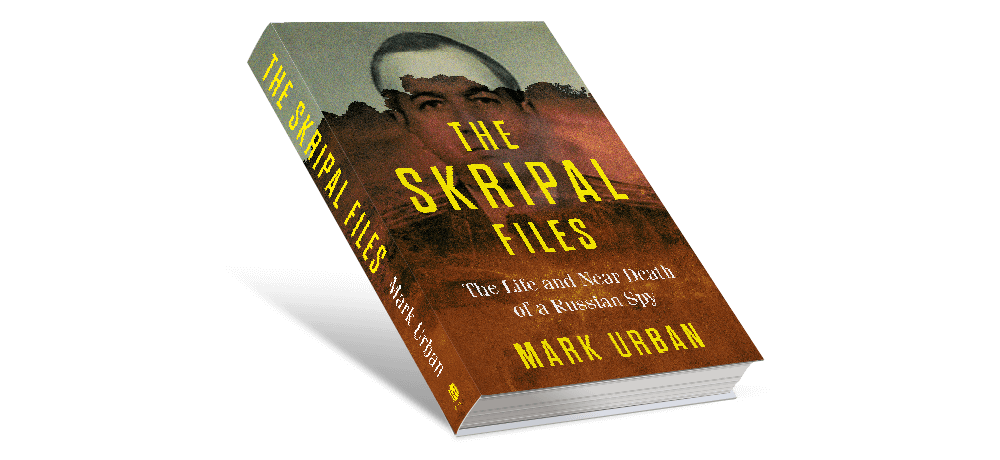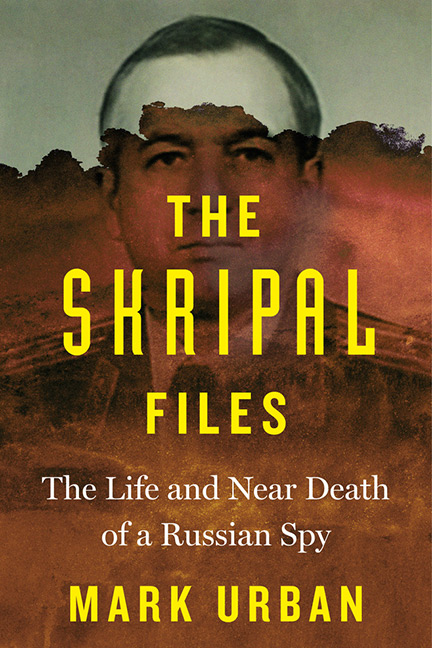
THE PITCH
It is high summer in Madrid, 1996. Two men are walking in the Parque del Retiro. It’s a working day so they are wearing office attire, which just raises the temperature still further.
The older of the pair is a couple of weeks past his forty-fifth birthday, big, with a boxer’s physique. He is fair-skinned and looks a little out of place among the Spaniards who flit along the paths pushing their kids in strollers or walking hand in hand. The other, maybe a decade younger, maybe more, appears to be Spanish. He’s darker, dressed the way the Madrileños might dress, and outwardly he appears more at home. But at the same time he doesn’t quite look relaxed.
The park’s thoroughfares tell the story of the pet projects of Spain’s Bourbon monarchs and statesmen. There is one section created in the formal French style with neat trimmed hedges and gravel paths; other thoroughfares are a little wilder. In July there are puppet shows and other activities for children, and the place has a real holiday atmosphere. Under the shade of broad boughs Madrid’s youth and beauty gather to picnic and canoodle.
There are hothouses, statues, and a boating lake. That gave a choice of rendezvous and its broad avenues, lined with horse chestnuts, poplars and maples, and narrower paths branching off them, offered ways to embrace the crowds or avoid them. With its myriad identities, el Retiro was perfect for the business at hand.
The bigger man is Sergei Viktorovich Skripal, the 1st Secretary (Scientific and Technical) from the Russian embassy. Actually that’s just his cover. His real business in Spain is as a colonel in Russian military intelligence, the GRU. He is operating in Madrid on a particularly sensitive mission reporting direct to the Centre. As for the man he is talking to, *Richard Bagnall (he is calling himself something else of course, a local alias), and as the stroll through the park goes on, he is growing increasingly nervous.
Richard has seen the older Russian several times now and he knows he must make a move. Skripal is coming towards the end of his three-year posting and anyway this little dance has gone on for long enough.
After a while with this sort of thing, if you don’t make things plain, the other person just begins to despise you, and heaven knows Richard had thrown out a few hints since their first meeting that April. He knows also that Sergei doesn’t have very long. That just adds to the pressure, as if there wasn’t already enough of that.
What the passers-by on that summer’s day in 1996 ambling along in el Retiro cannot know is that Richard is engaged in a carefully choreographed seduction. There is nothing sexual about it. Rather it is the beginning of a different kind of relationship, one that will last their whole lives, and is freighted with risk. Indeed the ‘thing’ that this younger man wants to start could quite possibly destroy Sergei’s life completely and utterly.
He is no fool, the Russian. He’d toiled for four years at the Military Diplomatic Academy, the GRU’s secret training college in Moscow, to prepare him for foreign service as an intelligence officer. Time and again in those airless rooms listening to the instructors, they had been warned about foreign spies and all the different ways that might be used to compromise and recruit them. And they had learned about recruiting their own agents, the tricks of the trade, how to lead a person past a whole series of moral turn-offs until the only road they could follow was to spy for you.
As Richard made his awkward small talk, building up to the moment, Sergei studied him. He looked so young, and so nervous, the GRU officer thought. How long had he suspected this dapper olive-skinned man, chatting away in the park? Certainly after two or three meetings some alarm bells had gone off.
This suspicious fellow had managed to turn the conversation to current events time and again. And once or twice he had strayed directly towards asking Sergei what he ‘really did’ at the embassy. One time, as they dined together, Richard had left a copy of a book, Aquarium, on the table, claiming it was what he happened to be reading and asking what Sergei thought of it. Aquarium was an exposé of the GRU by a former officer under the pseudonym Viktor Suvorov.
Skripal knew what he thought of that book. Its author, real name Vladimir Rezun, had defected to the UK in 1978 while serving at the Geneva rezidentura. Skripal attended the Military Diplomatic Academy soon after this fateful event, and heard Rezun described as a vile traitor who had betrayed his Motherland for a few pieces of silver. And what had he really known, this Rezun? He’d just been a captain in the GRU on his first foreign posting. Now he was skulking in the West, trying to make some money by exaggerating his own importance. If Richard had hoped to lure Skripal into talking about intelligence work in that Spanish restaurant, it was never going to happen. The colonel simply brushed him off, saying he knew nothing about the GRU.
On the other hand, there were things about this person that seemed to confirm that he was exactly what he said he was: a Gibraltarian businessman who’d made a lot of money in the oil business in Africa and was now looking for a partner in Russia. Sergei had him checked out by the GRU after a couple of meetings. Richard did indeed have offices in Gibraltar, the phone numbers were answered, and his name or rather his pseudonym was known in various places. And of course they’d been introduced by a mutual Spanish acquaintance.
If it was a cover, it was an excellent one, because Richard splashed the cash as you might expect a successful businessman to do, eating at the best restaurants and staying at excellent hotels when he was in Madrid. And the oil fields in the Tyumen or Komi republic of Russia had at that time become a sort of Klondike where people with the right connections could make millions – or indeed billions. What Richard needed, he said, was those right points of contact to get his hands on some of that black gold. It was the mid-1990s and everything in Russia was for sale, or appeared to be. Why was it so surprising that someone wanted to get in on the act?
As they strolled in the park they spoke mainly in English. While Skripal could speak Spanish tolerably well, Bagnall had mastered it. His pseudonym, his style of dress and above all his easy manner combined to make him seem quite genuine.
There was something so open and guileless about this guy also. He had asked Sergei’s wife Liudmila and their kids to join them at a flamenco club for an afternoon’s entertainment. After he’d met Sergei’s family a couple of times, this mystery man had appeared with presents for little Yulia and Sasha. ‘The kids loved him,’ Skripal reflected.
Arriving from a trip to London, the businessman had given Sergei something. It was a small model of a typical English country cottage. It was the type of thing that you could pick up for a few pounds in a tourist shop, probably made in China for all he knew. But for reasons he couldn’t exactly define, Sergei rather liked the brightly painted resin miniature, with its creeping plants, sagging roof, and arched front door.
Richard could drink too – gin and tonics, glass after glass of Spanish wine, then brandy – and to a Russian that gave him a sort of authenticity. This behaviour really didn’t sit well with how Sergei expected the British or Americans to carry out a cultivation. Conventional wisdom in the GRU held that these Western intelligence officers would avoid a target’s family for a whole lot of reasons. Not least, if your kid tells someone about the curious foreigner who keeps bringing gifts and seems to be your dad’s new best friend, the Russian diplomatic compound is going to start taking an interest.
Of one thing, Sergei had become sure: if Richard was a spook, he wasn’t a Spanish one. There was no way, given the long history of rivalry over the ownership of the Rock, that a Spanish operative was going to be basing himself in Gibraltar. Might he be CIA? The GRU colonel knew something else in his bones too, that if his persistent suitor was a CIA man, then he wasn’t interested. He wasn’t willing to take the risks that would be involved in treason for America, if that’s what this angst-ridden young man was indeed building up to.
As Richard built to ‘the pitch’, that moment when a spy finally asks someone to betray their country, the nervous tension, the temperature rose even higher. So much training, thinking, and advice fixates on that moment. It is romanticized by espionage authors and deconstructed in role plays at the Fort, where the UK’s overseas espionage agency, the Secret Intelligence Service, or SIS, but more often called MI6, trains its new officers, and now he, Richard Bagnall, who’d only been in the service for a few years, was about to pitch a GRU colonel.
‘Sergei, I have a friend who would really value your information on what is really going on inside Russia. He works for the British government. Do you think you can provide that for us? You would be looked after, of course.’
OK, Sergei thought, we have got to the point now. This guy is indeed a British intelligence officer. Yes, he’d be happy to meet again. ‘I was ready,’ Skripal would say years later. But how had that happened? How had he gone from arch-patriot, paratrooper, and senior GRU officer to somebody who was prepared to sell it all out for MI6?
Copyright© 2018 by Mark Urban

